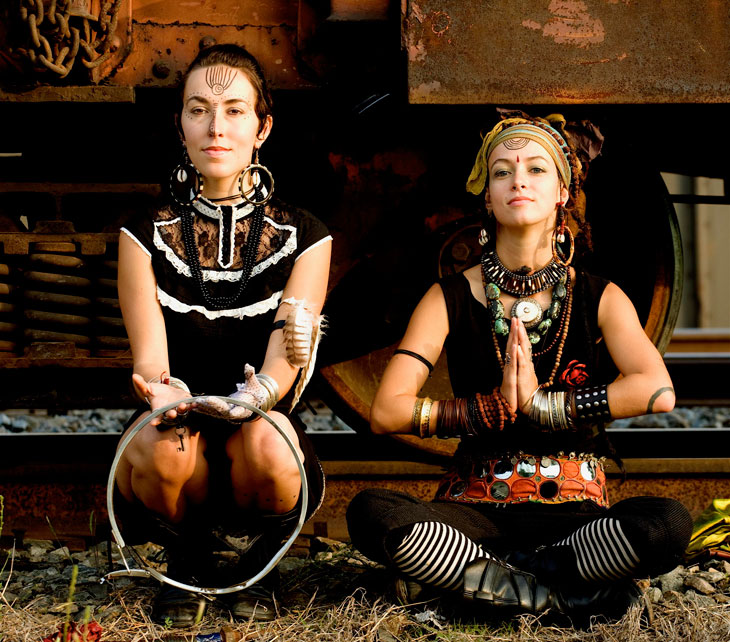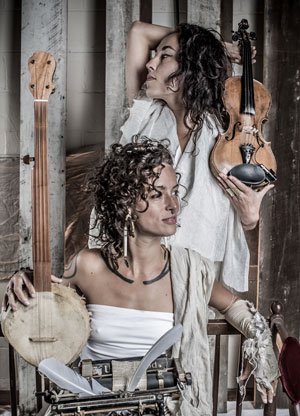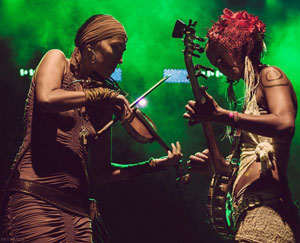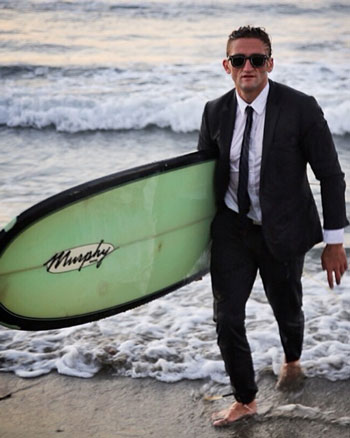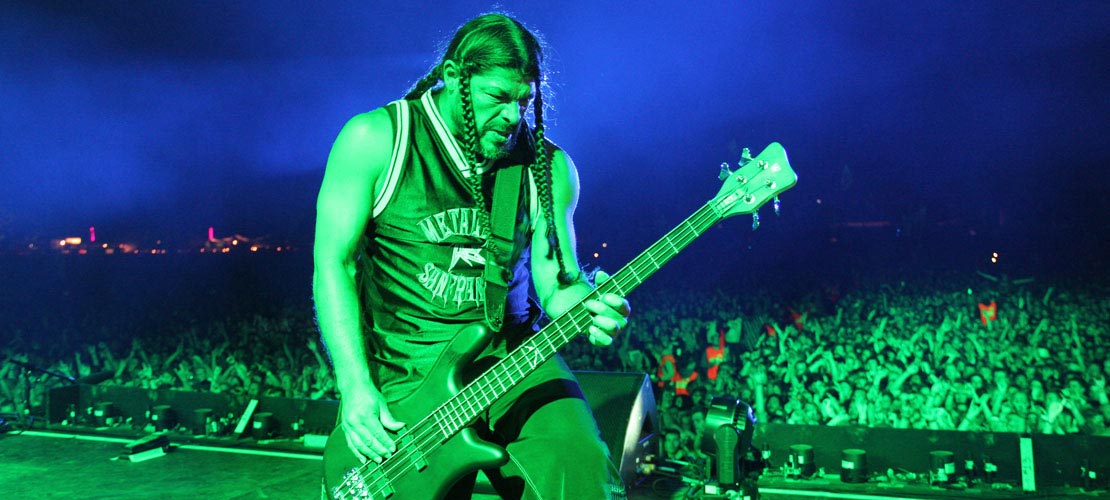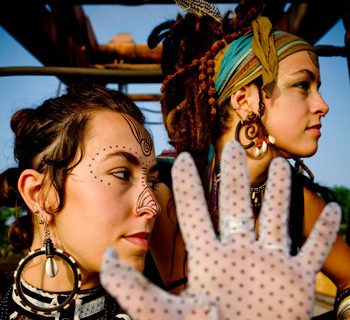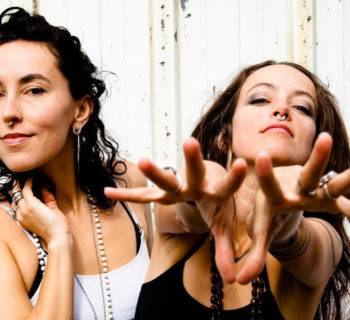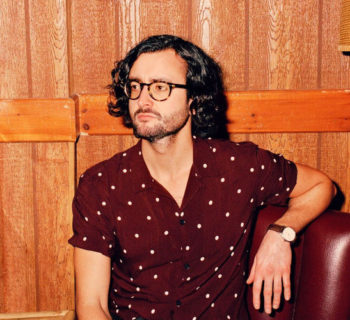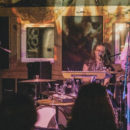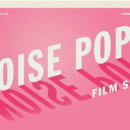“Another world is not only possible, she is on her way. On a quiet day, I can hear her breathing.” – Arundhati Roy
It is a nearly unanswerable question: how do art and activism tie together to create positive social and cultural change? The sisters of Rising Appalachia, Leah and Chloe Smith, have embarked on an unwavering search to bridge these ideas and bring them to their fans and musical community.
The Smith sisters craft their harmonies drawing on influences from the swampy heartland of New Orleans to the mountain-grown porch hymnals of the Appalachian Mountains. Growing up in the American South, the Smiths’ vocal and musical escapades have centered around hip-hop, jazz, and world music, imbued with their unique folk twang and mountain essence.
The sisters never planned on a musical career. Although they grew up in a musical household, until their mid-twenties, Leah and Chloe focused their passions mainly on activism. When they received a heartfelt response to their first album, recorded in a friend’s basement as a gift for their family, the two realized music was the realm in which their activist ideals could find the loudest voice.
Since starting their musical career in 2006, the sisters have been relentless in their dedication to creating an independent musical identity. Through their label-free, grassroots ascent to success, the members of Rising Appalachia, which now also includes Biko Casini and David Brown, have been able to stay true to their commitment to social justice.
Modern day troubadours, Rising Appalachia takes their call for social change on the road. Their tours are an eclectic collage of change makers. They just completed their Groundswell Tour in California, which they used as an opportunity to showcase the Prison Yoga Project and the Greywater Action Group. The band uses their musical platform to shed light on the activities of community organizations, local food issues, and environmental change.
The release of their most recent album, Wider Circles, marked a turning point for the band’s trademark, the Slow Music Movement, a term coined by Rising Appalachia themselves. Rising Appalachia describes this movement as “an effort to take glitz and glam out of the music industry and bring performance back to its roots. A place where musicians are not just part of fast-paced entertainment, but instead influence the cultural shift as troubadours, activists, and catalysts of justice.”
The Slow Music Movement foregrounds music’s role in regional culture and bringing communities together. Taking the artists out of the centerfold and putting them back on stages and porches reframes them as social catalysts as well as entertainers. By embracing this role, Rising Appalachia has consistently intertwined their strong ideals of positive change with their magnetic voices and stage presence. Rising Appalachia’s work with other socially-conscious artists, including Nahko and Medicine for the People and Shea Freedom, has forged a strong connection with a broader musical community working toward social transformation. Music is a language that reveals the story of the culture from which it emerges. Through cultural examination and social exploration, they are bridge builders between the worlds of art and activism.
Leah from Rising Appalachia was truly gracious in talking with us in between tour stops.
How has the tour been? You guys have been on the Wider Circles tour for the past year now.
Rising Appalachia: It’s been amazing! It’s been a culmination of a lot of working ideas and musical ideas and outreach ideas. We’ve been kind of using this as a promotional float for the new album, but also to explore and try out some different strategies from we’ve been using. It’s been a massive amount of learning. It’s pretty tiring and intense.
So, is there anything that has really stuck with you after you’ve had a tour with so many different types of learning experiences?
RA: Well, we started this project called the “Slow Music Movement” that basically encapsulates a lot of different ideas for alternative touring. I think that has really stuck. It’s stuck in creating a long-term goal to flesh out ways to be performing artists and musicians on tour, and still manage to move in a slower and more sustainable way, and also … to try to develop relationships with the community as we’re touring. It’s become a long term project. I think we will just always be trying to flesh out that idea further and further.
That’s been a really big inspiration on the Wider Circles album. It’s an amazing experiment and a cool way to explore alternatives. We will continue to flesh out those ideas, and we are also launching into some more fun, stable relationships backstage. I think that the social component of it has felt like it is strengthening. And the musical component of it, which obviously is also a very important part, is really starting to strengthen and solidify it all. I think it is a great fortification after our eleventh year of touring.
Wow! That’s a long run.
RA: Yeah. Things are shaping up that we’ve been trying to wrap our heads around for many years.
It sounds like an amazing year for you guys.
RA: Yes, it feels that way, definitely.
I want to hear a little more about the social work that you’ve been doing in conjunction to your music projects. You’ve been working with the Prison Yoga Project. I’d love to hear more about how that has been unfolding and what that looks like.
RA: Each of the band members has different relationships with activism and justice work. Each of us has different things that we want to focus on. Prison justice is one that has been very important to me for a long time. I was a really rowdy child and teenager and would probably have gone through juvenile detention for about 10 years. With luck and through strong community, I didn’t go, but many of my friends did. As an adult I started slowly working with outreach and different communities and they one day put me in a workshop working in a juvenile detention center in Atlanta, Georgia. I was there for a few days. I worked with a group of young boys and then a group of young girls, and then the whole band came in and we did this huge performance.
I think that was a really big turning point for me and for us as a whole crew, that there is an entire, vast community of people, incredibly underserviced people, often dealing with racism and sexism as well. They are in wounded places, they have a lack of resources, and they are being caged up and taken out of society and ostracized. It is not doing anything but making it even more challenging for this group that is already in a socially challenging position. All it does is take a wounded person of any walk of life, from any background or from any family that has been struggling, and put them in a place where they have less self-esteem, and fewer resources, and less access to believing in themselves and what they can accomplish. While we were working in the juvenile detention center, it was then that we realized that any amount of creativity that can be brought into a prison or a jail cell is a pretty, pretty massive service. It just continues to remind them that they have so many different choices of how they want to live.
We are lucky to have an audience and the fan base that continues to keep us humble, because they are often doing some of the most powerful work in their communities.
We started slowly. I created a small workshop that I bring into different youth groups, prison groups, and community centers around the country. I try and adjust the workshops for whichever group of folks I am working with. There’s different ages and different demographics that I’ve done, but when I can get it into a prison community I really feel that it offers the most service. That [workshop] is more around mindfulness, youthfulness, and creativity, but also personal meditation tools. I think that was so important to me growing up, so that is something I wanted to share.
So when I found out about the Prison Yoga Project, I started training with them. I did their training and workshop, and I very much wanted to bring the information [about what] they are doing … around the country. They … talk to an audience and help with the stereotypes about who is prison, what life is like in prison, and what it means to be in prison, and start having a dialogue [not about] caging up the “bad people,” quote-unquote, but about distorted justice and giving people tools to know how to help that situation and get involved. It’s such an easy, direct action program. There’s very little overhead costs. It’s just working to get power feeds into prisons all around the country, doing anger management tools, and personal meditations and yoga and movements. It’s a really open approach. So, we wanted to not just bring any bad fears to our comfort feel, but also to bring in information so that you can get your hands on, get involved, and learn more about these issues.
So, we’ve been bringing [the Prison Yoga Project] to shows anywhere that we can. We’ve done some fundraising for them on our West Coast tour and also hope to actually build relationships with some of the prisons they work in and be able to work in the prisons as well. It’s one of many strong projects that we have. Our work is not direct action, it is creative process. Hopefully, it can inspire people … to have relationships that can be more long-term in some of the communities and some of the more rooted, local work.
That’s a very, very long answer, ha-ha.
It’s amazing. I feel the more that I find out about what the collective of what Rising Appalachia is doing, I am so inspired about what you are able to accomplish. I wonder where all of that energy comes from? How do you sustain all of the different projects you are working on and how do you keep the inspiration going?
RA: Well, we were just having a really long conversation about that very thing.
I think that we try really hard to nurture through our core unit, the musicians and the crew members, so that we feel there is a lot of support and real camaraderie. That becomes a strengthening piece. If we are really exhausted and overworked internally, then we can’t do as much service to the world. We start bickering or organizing internally or try to figure out how to micromanage each other. I think that there is a part of our team that is sort of home-based. We strive to support and be friends and comrades to each other, and that creates a lot more space and support to do greater and bigger work.
I would also say that [we depend a lot on] our greater community, our fan base, to help carry on more of the outreach. We really do. We ask what is going on locally, who wants to step up and communicate what is going on locally to keep folks involved, because we don’t have the bandwidth to know each town and each community and what organizations to work with. We have what we call the bugle horn. We have the power of voice and can spread information, but we don’t necessarily have the resources at the time. We are lucky to have an audience and the fan base that continues to keep us humble, because they are often doing some of the most powerful work in their communities. We just make the space for them. It is majorly collective. A lot of the faces that do the groundwork we don’t even necessarily see. We just try and keep the door open.
Do you see yourself at some point focusing more on your work at the ground level, and more in one community, and more localized in the future?
RA: Yeah I do. I think we are all looking forward to a time in the not-too-distant future, where we are not touring as fully, but we are touring in a more sustainable [way] and adding more relationships on the ground. We are fortunate: we’re four musicians who play full-time, and no one wants to be a rock star. Everybody is really excited about doing music and also having other interests, other art forms, and other work.
I think the longer-term goal is to see how the Rising Appalachia project can be a platform to other work as well and get to a place where we are still producing music but touring a little less and having relationships in communities [on our] home turf. It’s not going to happen quite yet. We are also very thankful that we are supported in music and other projects. I don’t think we will pull a Willie Nelson for many years.
So as this tour comes to a close, have you all been collectively talking about what’s next?
RA: Yes, we have. We are currently taking breaks for the winter and then we are doing it again. One time we toured all the way through the year, and it was close to disaster—we were incredibly overworked. So we are going to break for about three months, and that is for everyone to do personal management work, whatever that means for them. We really try to take the Rising Appalachia winds off and give everyone free time, time to rest or time to work on other creative projects or to record. Everyone will do their own thing, and then at the end of winter or the beginning of spring, we will regroup and get our tops back in line. I don’t think we will start touring in the spring, but we do plan another full year of touring, festivals, and travel. We are hoping to get up into Alaska and British Columbia, and we are hoping to get a European tour as well.
So, we will have another full year in 2016. Everyone please come and hang with us—but only after some much-needed rest.
I have been really interested in where the inspiration came from for the song “Oh Death.”
RA: I’m guessing old, traditional Appalachian mountain tunes. We grew up with both Appalachian influences and a lot of real powerful, urban, Southern soul roots and blues music. So when we did “Oh Death,” we interpreted it in a slow and funky, saucy way, and we have always, always, always worked from the very beginning of our music. We always worked with the spoken word community and have had many poets on the road with us. We’ve had different poetry projects and have had spoken word artists touring and opening our nights. When we started collaborating we got this idea from Theresa Davis, who is one of our longest collaborators and an amazing artist, and she had written that poem in “Oh Death” for a relative of hers that passed away. We started integrating the two pieces many, many years ago and it was instantly magic. It was such a real piece for her, as a song that is already in this deep conversation with death, almost a plea with death as a character, and you can sort of bargain with it. The two sit so well together. They weren’t written for each other, but they fit. We really wanted it to feature her and that rendition of the song.
There are so many pieces of this album that feel a little more vulnerable than some of the other songs I’ve heard in the past.
RA: That’s a cool way to put it.
I think that there’s more of that integration from these different lives, and it is like this full piece of what you’ve really been collecting.
RA: Yeah, that’s a good way to put it. I’ve always talked about it as being a more deluxe album. It feels more subtle, but that is good that it feels more vulnerable. You can tell that we are getting older, our teenage angst is wearing off.
It’s great to see you mature through your music.
RA: Yeah, softer edges. A little more marinated subject matter too.
In relation to the Prison Yoga Project, I’m curious about what you think about what kind of social responsibility artists have to bring these matters to the forefront.
RA: Yep, yep. I feel like we have a fairly middle-ground opinion on that, at least Chloe and I. We’ve always looked at it like a public service job. We saw our responsibility is to tell the story of those who don’t necessarily get to tell their story, but also it is more of a collective consciousness. We also obviously have a lot of our own beliefs and politics and agendas. We steer clear of trying to convince the next mob, and of standing there throwing our fists in the air as if we know all the answers and [believe] people should follow us.
It is really important to us that we create a space for dialogue and for questions, but that it is open enough that we are not putting our beliefs down people’s throats. We are trying to provoke conversation. People should [do] their own research, look into their own local policies and collectives, research what interests them, and come to their own opinions. We really wanted to steer clear of writing political music, but [instead try] to write provocative music. If someone needs to let their voice out, and all of our amazing friends who are radical activists just need to come have a dance party and take a break because they are on the edge of burnout, they can come. If someone’s grandma needs to come and shake some tail feathers and learn about local issues, … then she can come. There’s a place for everyone. Hopefully we are not going to bludgeon anyone, ever.
Something I really enjoy about your lyrics is they start to become these positive mantras. You don’t even necessarily realize you are saying them to yourself all the time, but you have the song stuck in your head and it is uplifting to have those words running through your mind.
RA: That’s true—I like that. Thanks for the reflections. [It’s] somewhere in the middle. We don’t want to write just uplifting music, but we also don’t want to write that the world is collapsing. Both are important. Something about it to get people questioning, but also to encourage folks to [latch] on to what is working and find strength in that, because it can be a little overwhelming.
I think “Oh Death” really displays this. It comes right before “An Invitation.” It’s a balance between those two things. I love that it’s like two pieces of the whole.
RA: Yeah, you have to have a relationship with your shadow.
For more Rising Appalachia
Tell us about your relationship with your shadow below in the comments.

